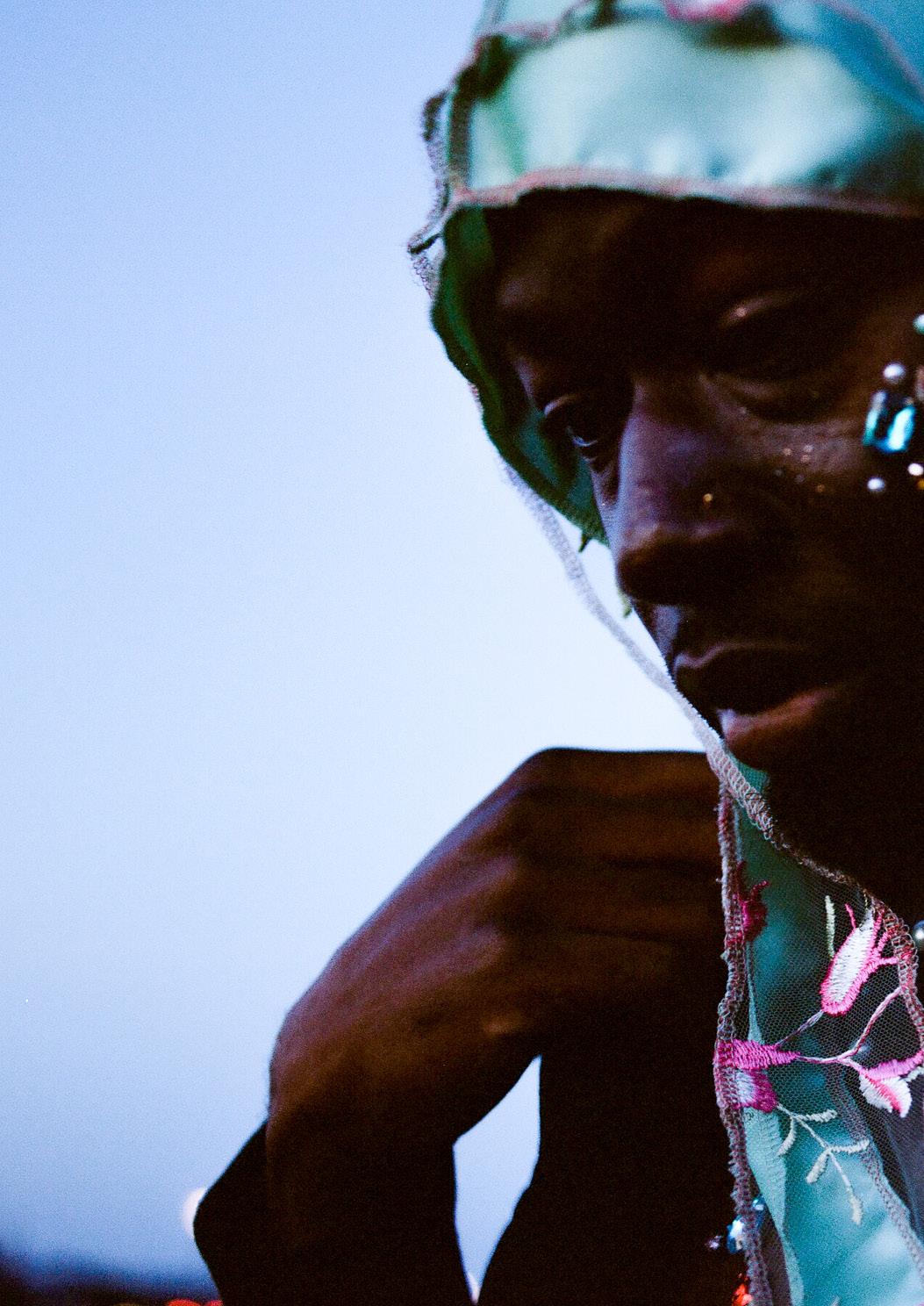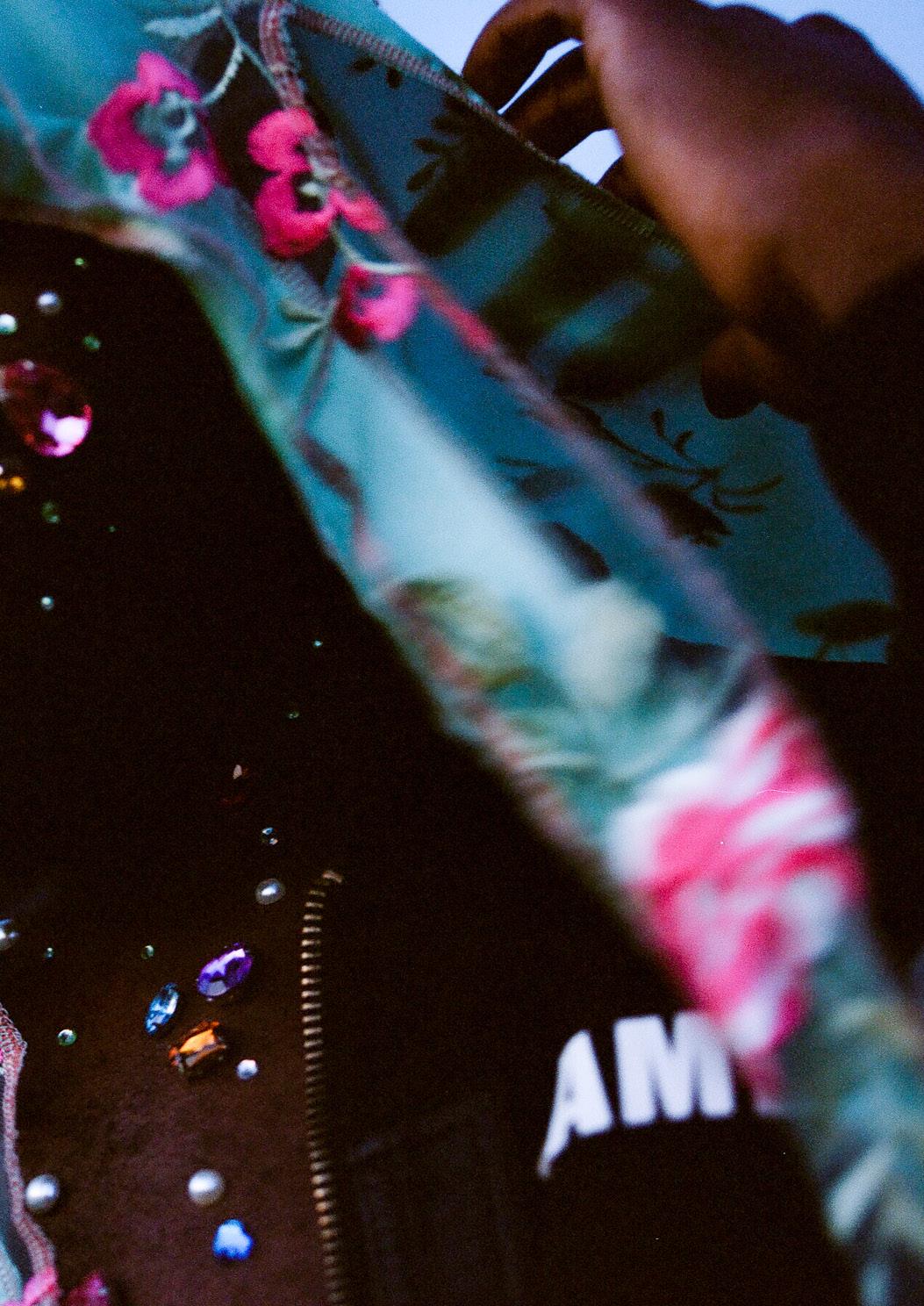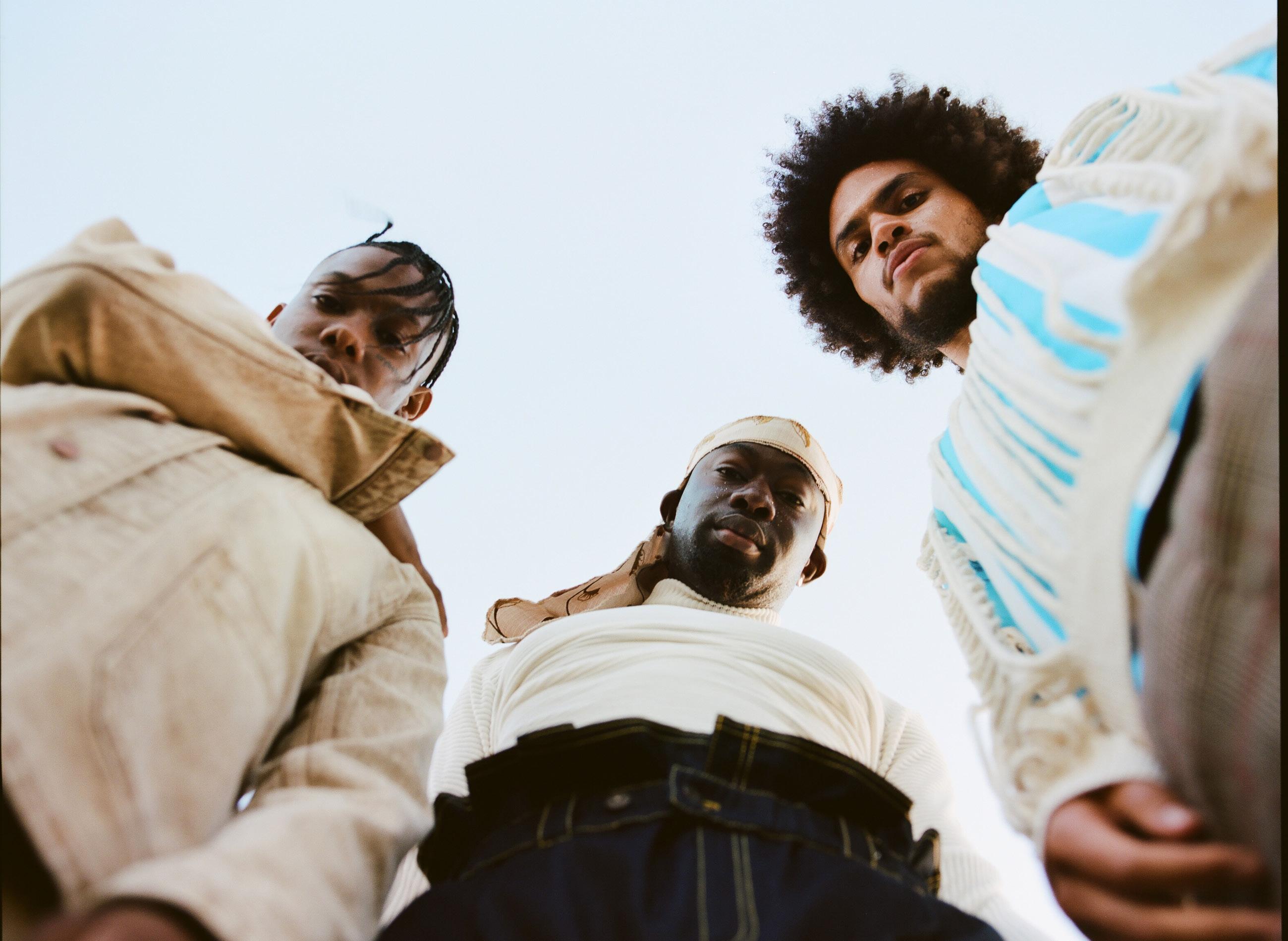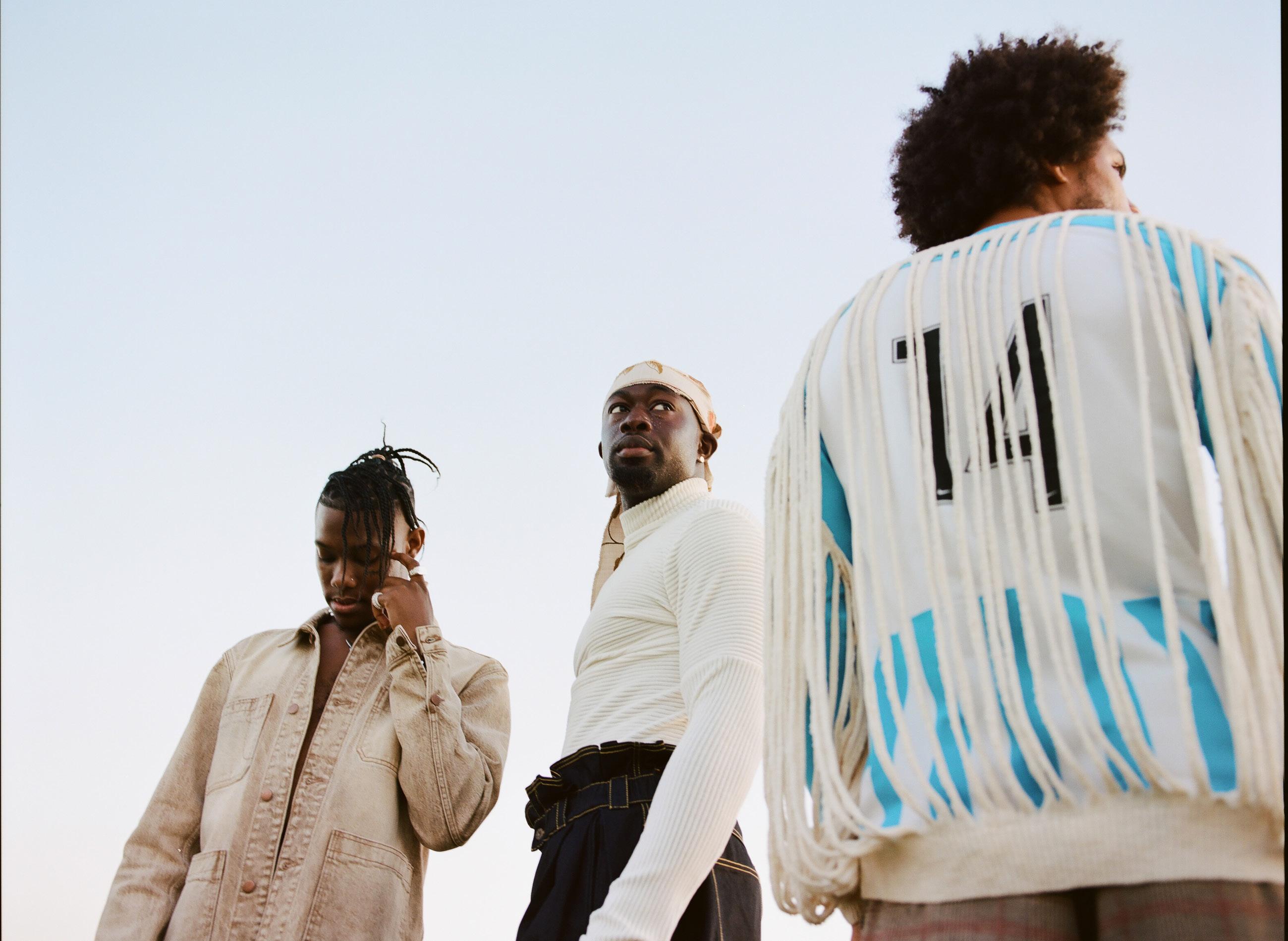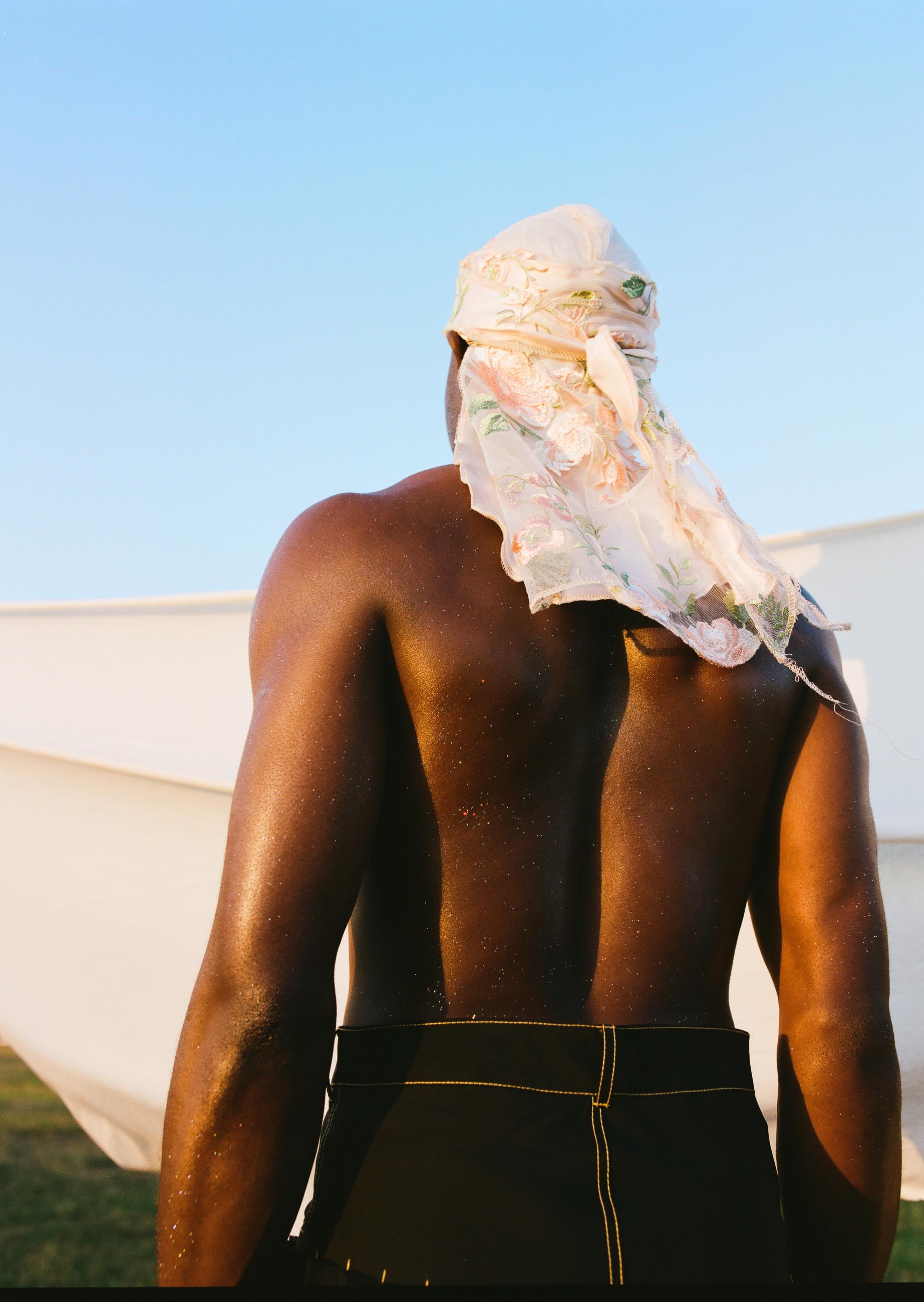
6 minute read
Manliness
OUTSINCETUESDAY.
STYLING BY @LEZLEYANNETWANG MAKEUP BY @SHIREENKADHIM DOP: @NOSTALGICNOMAD ASSISTANT DOP: @JESSECRANKSON
Advertisement
PRODUCTION MANAGER: @FRANNICOLEFORD RETOUCHING BY @AURORA_RETOUCH
MANLINESS
What does manliness mean to you?
Lucy: ‘Manliness’ doesn’t mean anything to me and it shouldn’t mean anything to anybody. You could easily rephrase the question as ‘What does being an individual mean to you?’ and you’d end up with the same answers. The word itself makes it seem like certain attributes and behaviors are only appliable to specific genders and if a woman was described as manly it’s mostly received in a negative light and vice versa if a man is described as feminine. These words are pointless because all genders can exude similar behaviors.
Omogbolahan: Manliness encompasses all the attributes typical to men for me, but also, all the attributes that are atypical as I am a man biologically and in my identity all my characteristics embody my identity.
Abbas: It’s whatever makes me feel empowered as a man and true to myself. It’s a combination of different things which may change from time to time. Right now it’s being proud of my identity, exercising my physical and mental strength. Having emotional intelligence, the ability to express myself and be a positive presence around others.
Why is identity important to you?
Lucy: I think it’s just always good to understand who you are as a person, when you do you’re able to just make better decisions with your life. You’ll avoid doing things that make you unhappy because you know exactly who you are. Identity is important for your own happiness.
O: It helps to ground me in my history, present and future. It’s evolving and enables me to navigate the world I operate in with more confidence
Do you think you conform to “manly” social ideals, how so?
L: I do but only to a certain extent which is largely due to who I am as a person as opposed to being programmed to think ‘I have to do it because that’s what society says’. For example, if I go on a first date with someone, I’m splitting the bill since I don’t think I should have to pay since it’s the first time I’m meeting her, however, if I’m in a relationship I’ll always get the bill just because I want to, because I like the person.
A: Yes, I do conform to some. I often try to deal with problems on my own, I hate asking for help and I can end up distancing myself from people as a result. I guess that’s something typically associated with masculinity, being self-reliant. I don’t think there is anything wrong with certain “manly” social ideals though because everyone is different. However, when they start to become toxic that’s when issues arise, it’s all about balance.
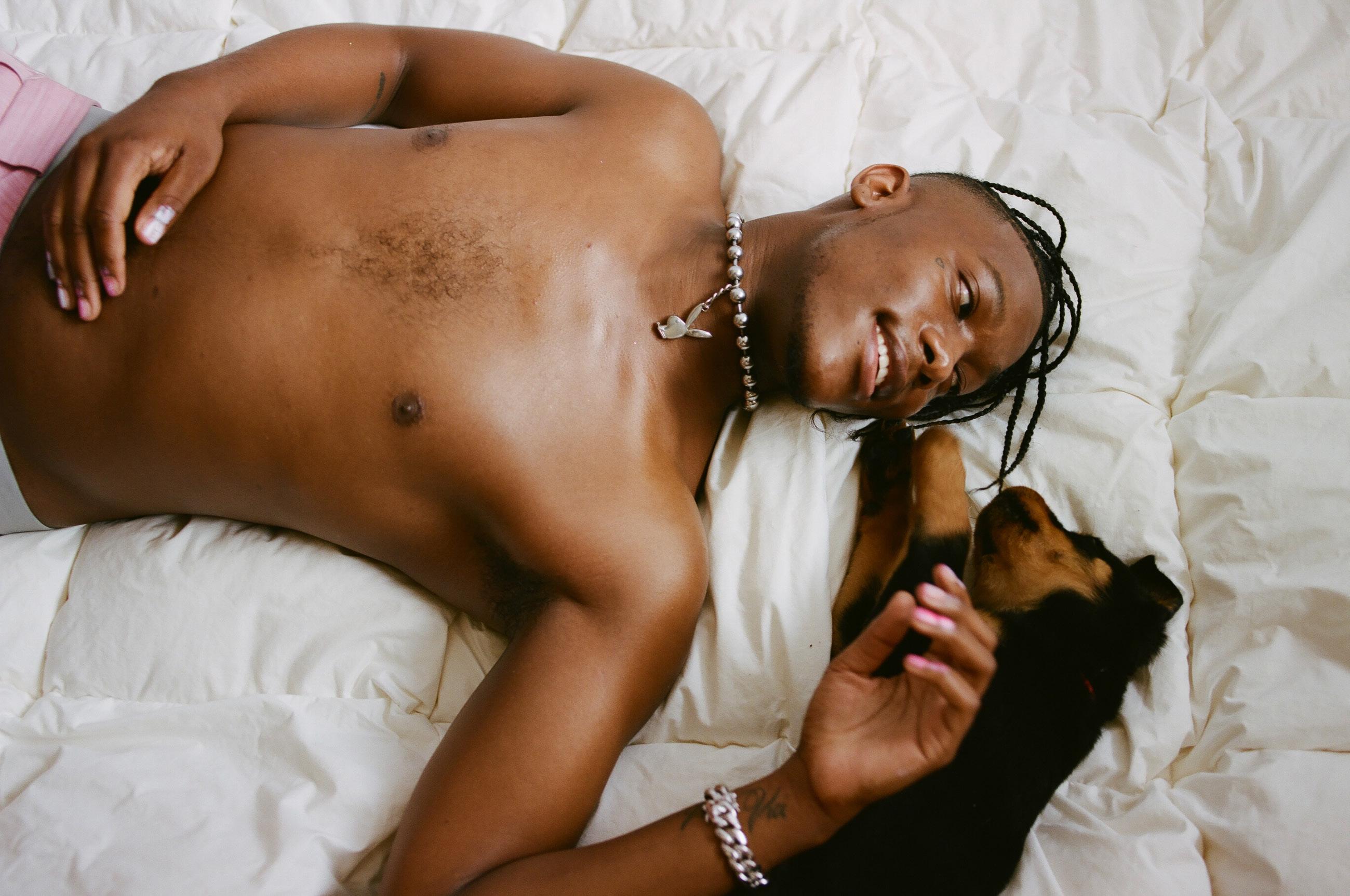
How do the social pressures of manliness affect your life as a black man?
L: Hmm, all the “pressures” I experience are based on me being too hard on myself. I rarely take in what society thinks... O: The pressures haven’t affected me as much as I think it has most. In terms of the spaces and people I move around, at times, it has perhaps brought out some behaviours more than others. I limit my time in these scenarios though.
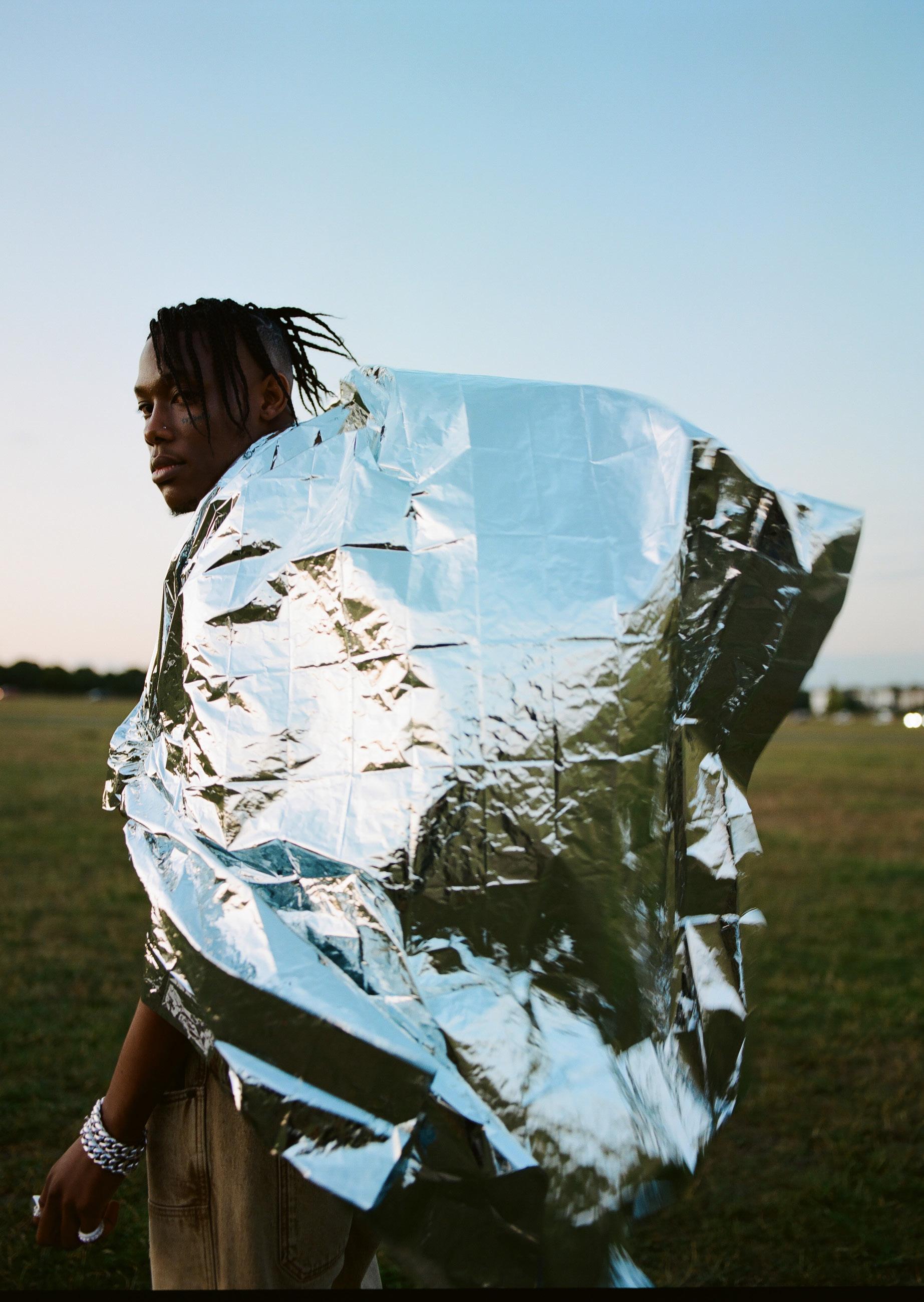
“I DECIDED TO START THINKING FOR MYSELF WHEN I REALISED HALF OF THESE “IDEALS” ARE BACKED BY SOME OLD SAYING, FOR EXAMPLE “IF YOU ONLY HAD AN EARRING IN YOUR RIGHT EAR, YOU WERE AUTOMATICALLY GAY.” - LUCY
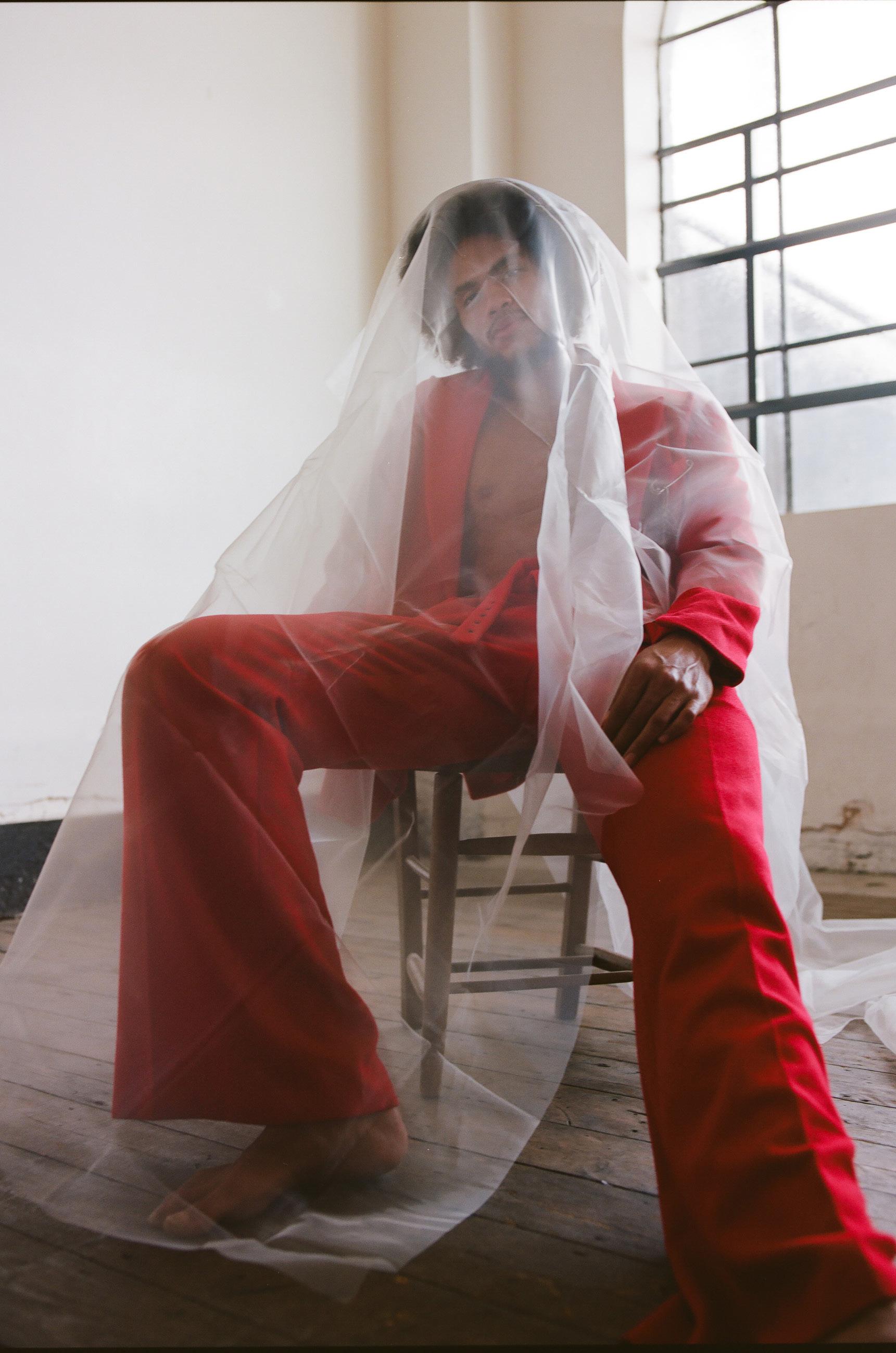
How do you think black men are portrayed in society vs How do you see yourself?
L: It’s clear black people are portrayed negatively in society. Even with that being the case, I view myself as a superhero.
A: For the most part black men are portrayed negatively, the media on the whole paints an ignorant image of black men which creates stereotypes that a vast majority will consume and take as the truth. I see myself in a very positive light and try to maintain that as often as possible, not in an arrogant way but more so to uplift myself.
O: Aggressive, hypersexualised, athletic, entertaining, flashy and I believe I am some of those things but many other things also that are rarely seen in media and public discourse.
In which scenarios do you feel pressure to conform to expectations of a man?
O: Within relationships mostly and I suppose in very male dominated spaces like the gym
A: I don’t really feel like I do need to conform in many scenarios. Honestly I feel that everyone has their own ideals and if they want to lead their life a certain way that’s cool, but it shouldn’t be forced onto anyone else.
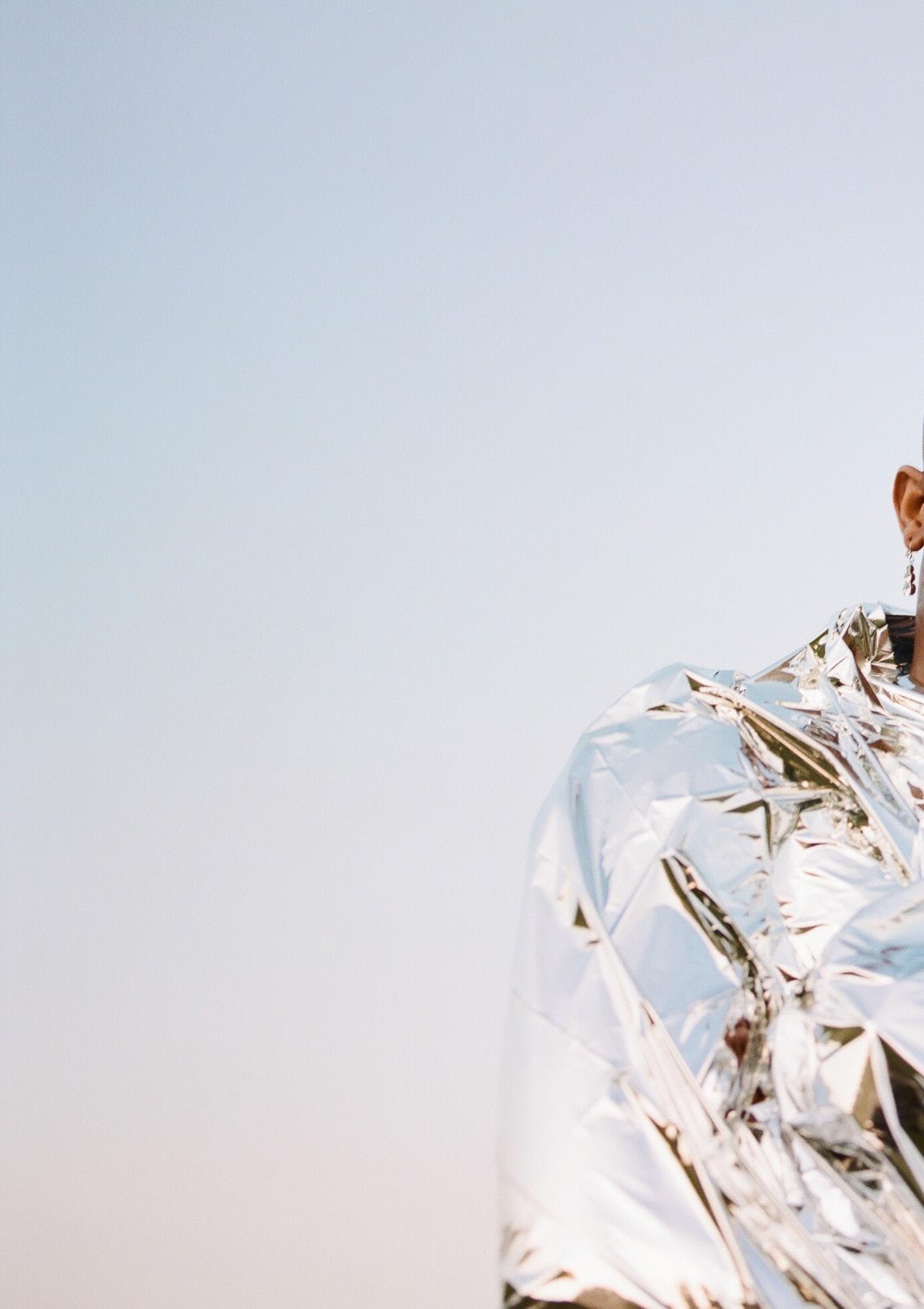
Do you feel that males are fairly represented in the media and the creative world?
L: I think males as a whole are fairly represented in the media and creative world, yes, especially when you compare how men are represented as opposed to women. However, there are discrepancies when you start to look at the ethnicity of those men.
A: I think men in general are fairly represented, especially in comparison to women. However, more specifically I don’t think black men or other ethnic minorities are represented fairly.
What, if any, added pressures do you consider as a black man when it comes to manliness?
O: The attributes, some positive and some negative of men in general are exaggerated for the most part for black men. Being sexual, athletic, confident, strong etc.
MODEL: LUCY @PRDALUCY
A: I think there is pressure on men in general when it comes to manliness. For black men, I feel that society creates an added pressure for us to behave a certain way. Which can become limiting, sometimes certain experiences will be overlooked or dismissed just because we have been programmed to avoid certain things. For example, making sure we are aware of our mental well-being, and facing our problems with solutions or action. Talking about our problems or showing vulnerability can often be viewed as weakness.
What tools do you think are needed for men to confront their own masculine ideals? And what tools do you think society needs?
L: Understanding your own identity and being happy with that and knowing that all these “masculine ideals” aren’t your own.
O: I think it needs to be challenged and brought into the conscience of children because that is when the ideals are being formed. Society needs more diverse representations of masculine ideals to brought to the forefront.
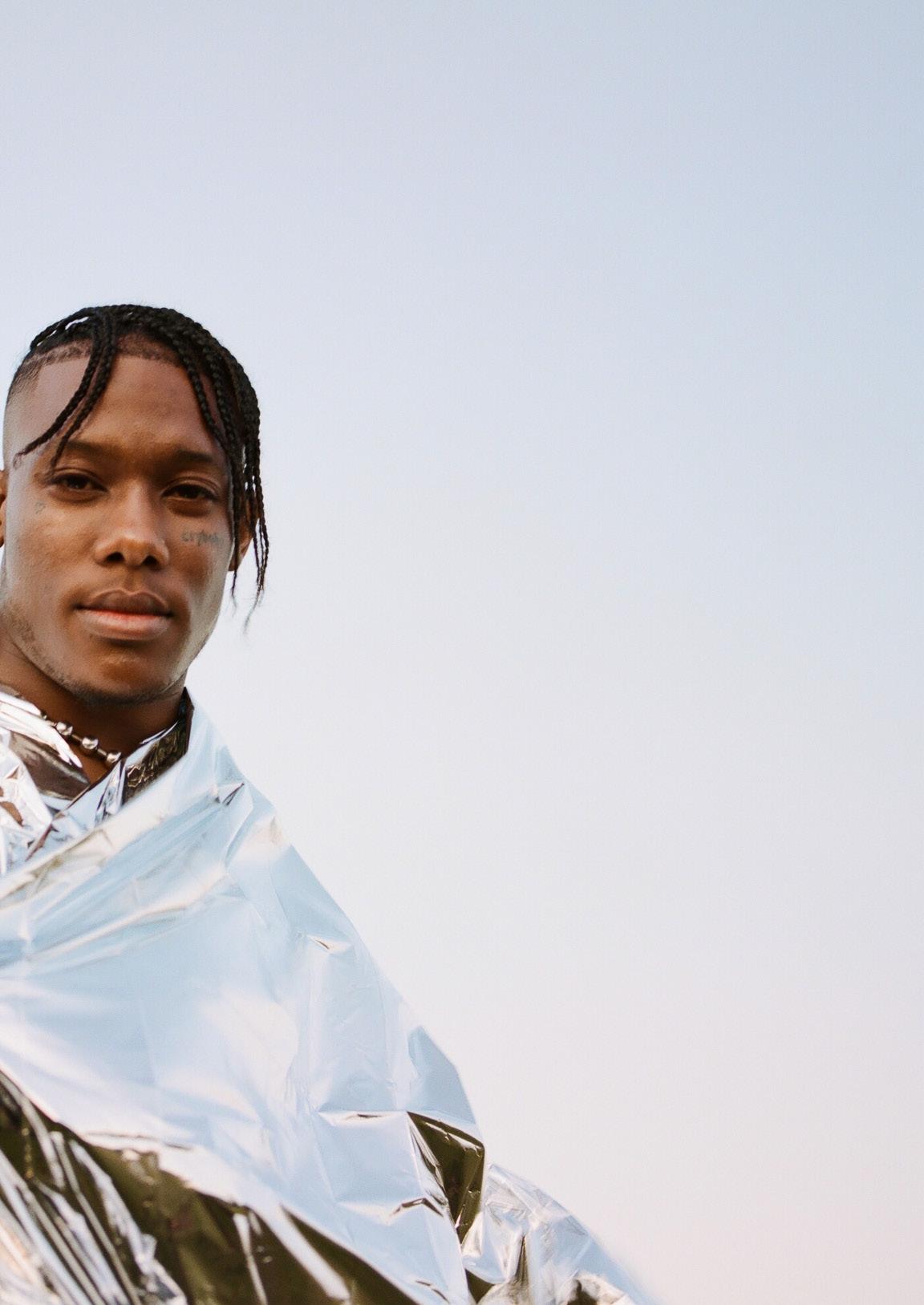
A: I think society needs to encourage men to challenge their ideals, because this would lead to having more progressive discussions with each other. It really does come down to being at peace with your identity and being aware that we are able to create our own masculine ideals without having to follow what everyone else says is right.
